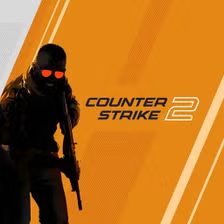Schedule I – A Dystopian Puzzle Thriller Set in a Controlled Future
Introduction: Time is the Only Enemy
Schedule I is a dystopian narrative-driven puzzle and strategy game where every move is governed by a rigid timeline. Set in a future where society is controlled down to the minute by a mysterious AI regime known as "The Clockwork Authority," players must navigate surveillance, make life-or-death decisions, and manage limited time slots — or face being "rescheduled" permanently.
Combining the psychological tension of Papers, Please with the strategic logic of Into the Breach, Schedule I offers a unique blend of narrative depth, timed decision-making, and moral ambiguity.
1. Setting and Worldbuilding: Welcome to ChronoGrid-7
The game is set in ChronoGrid-7, one of many heavily surveilled mega-zones where all human activity is programmed and approved in advance. Citizens live by a government-issued schedule, and stepping outside your assigned time block triggers surveillance alarms or worse.
Pros:
-
Unique dystopian setting rooted in time control
-
Deep lore presented through documents, overheard conversations, and schedule logs
-
Environment reflects mood — cold, mechanical, and oppressively silent
Cons:
-
Minimal open exploration
-
Some locations reused with limited variation
2. Gameplay Mechanics: Puzzle Strategy with Real-Time Pressure
Gameplay revolves around solving schedule puzzles, where you manage your tasks while avoiding AI patrols, meeting contacts, or hiding your intentions. Every second counts, and one delay can cause your whole plan to collapse.
Pros:
-
Innovative time-based strategy loop
-
Every choice has real consequences in gameplay and story
-
Supports multiple playstyles: stealth, logic, risk-taking
Cons:
-
Steep learning curve in later chapters
-
Occasional trial-and-error moments
3. Storyline and Moral Choices
You play as Operator-94, a low-tier worker who discovers a hidden schedule anomaly — an unassigned block of time — and becomes entangled in a growing underground resistance. Choices range from protecting innocent citizens to sabotaging Clockwork operations.
Pros:
-
Branching narrative with multiple endings
-
Morally complex decisions tied to scheduling consequences
-
Impactful choices feel personal and immediate
Cons:
-
Some narrative paths are locked behind obscure conditions
-
Occasional info-dumps through long documents
4. Time Management System: Your Life in Blocks
The central mechanic is the Schedule Grid, a visual representation of your 24-hour timeline. Tasks must be arranged, moved, and optimized to avoid conflict — such as attending mandatory work sessions, smuggling contraband, or visiting black-market vendors.
Pros:
-
Intuitive drag-and-drop time planner
-
Encourages critical thinking and route optimization
-
Mistakes create real tension and narrative impact
Cons:
-
Can become overwhelming as layers increase
-
Small time errors can ruin entire missions
5. Surveillance and Stealth Systems
Every action you take is tracked by the Clockwork Authority’s AI. Security drones, surveillance cameras, and activity monitors require players to reroute, hide, or forge reports to stay undetected.
Pros:
-
Adds a constant layer of tension
-
AI behavior patterns can be learned and exploited
-
Hacking and jamming tools offer creative problem-solving
Cons:
-
One mistake can result in instant failure
-
Limited forgiveness for stealth errors
6. Visuals and Sound Design
Schedule I uses a brutalist visual style, blending greyscale cityscapes with sharp red overlays to indicate surveillance zones and time violations. The audio is minimal, with ambient drones, radio broadcasts, and ticking clocks adding to the atmosphere.
Pros:
-
Visually distinct and thematically consistent
-
Ambient sounds increase immersion and paranoia
-
Excellent use of UI to reflect schedule tension
Cons:
-
Sparse use of color may feel monotonous to some
-
Limited character animations and facial detail
7. NPCs and Dialogue System
Interactions with NPCs are tied to your schedule. You might only get one chance to talk to someone — and whether they help or betray you often depends on your timing and past choices.
Pros:
-
Meaningful, time-sensitive conversations
-
Dialogues reflect the stress of a controlled society
-
Well-written characters, each with their own hidden motives
Cons:
-
Missing a key meeting can lock out story paths
-
Limited voice acting (mostly text-based)
8. Replayability and Multiple Endings
With at least four distinct endings, Schedule I encourages replay through different time paths and character decisions. Players can align with resistance, betray allies, or try to survive within the system.
Pros:
-
Strong incentive to replay with new strategies
-
Endings change dramatically based on key decisions
-
Hidden content and schedules revealed in later playthroughs
Cons:
-
No save-scumming — choices are locked
-
Early replay pacing may feel slow
9. Accessibility and User Experience
The game includes colorblind options, keyboard shortcuts, and tutorial overlays to help new players understand the grid and mechanics. Tooltips help clarify complex mechanics like task prioritization or patrol loops.
Pros:
-
Helpful onboarding for puzzle mechanics
-
Clean, minimalist UI design
-
Includes timeline preview to plan future actions
Cons:
-
No voice narration for accessibility
-
Occasional bugs with time-slot conflicts
10. Developer Support and Updates
The indie team behind Schedule I has shared a content roadmap including new levels, accessibility features, and mod support. They engage with players via Discord, patch bugs quickly, and invite community challenges.
Pros:
-
Transparent and responsive development
-
Frequent patches and player-requested features
-
Plans for community-created puzzle packs
Cons:
-
Lacks full controller support
-
Mod tools not yet released at launch
Conclusion: Time Is a Weapon — Use It Wisely
Schedule I is a bold, cerebral, and emotionally charged experience that redefines how time-based strategy can intersect with dystopian storytelling. It’s a game that rewards forethought, punishes complacency, and immerses you in a world where every second counts — literally.
With its unique schedule grid, branching narratives, and haunting atmosphere, it appeals to fans of deep puzzle games, stealth strategy, and morally complex storytelling. While it may challenge newcomers with its intensity, Schedule I is a standout indie gem that proves control, not chaos, is the new form of rebellion.

































